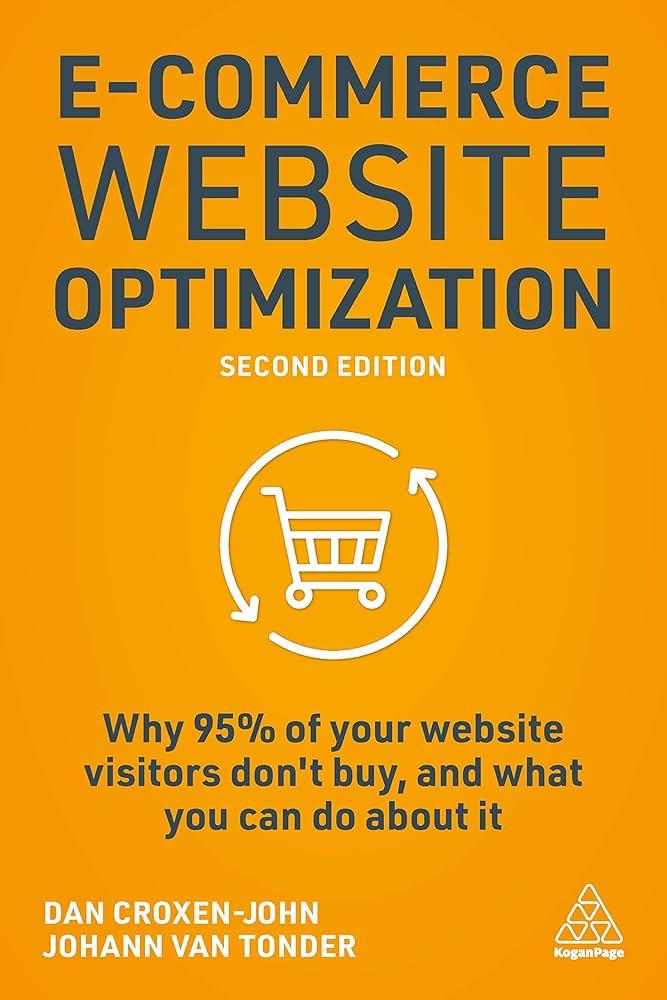In the bustling digital marketplace, where competition is just a click away and consumer expectations soar to new heights, the success of your e-commerce website hinges on one pivotal factor: optimization. Just as a finely tuned engine powers a racecar to victory, an optimized website can propel your business to the forefront of online retail. But what does it truly mean to optimize in an e-commerce context? From enhancing user experience to refining search engine visibility, the elements of optimization are multifaceted and ever-evolving. In this guide, we’ll explore the strategies and best practices that can transform your website into a seamless, engaging, and high-converting platform. Whether you’re a seasoned online retailer or just starting your e-commerce journey, maximizing your website’s potential is the key to unlocking enduring success in the digital realm. Join us as we navigate the essential steps toward e-commerce excellence.
Understanding User Experience to Drive Sales
To cultivate a successful e-commerce website, it is essential to focus on the nuances of user experience (UX). When customers visit your site, their journey should feel seamless and intuitive. Think about key elements such as:
- Navigation: A clear, easily accessible menu that allows users to find what they seek without confusion.
- Visual Design: An aesthetically pleasing layout that reflects your brand while being easy on the eyes.
- Loading Speed: A fast website not only reduces bounce rates but also enhances user satisfaction.
- Mobile Optimization: With a growing number of consumers shopping via smartphones, ensuring a responsive design is crucial.
Furthermore, incorporating feedback mechanisms can significantly enhance your UX strategy. Consider implementing customer surveys post-purchase to gather insights about their experiences. This data is invaluable in identifying pain points and optimizing for future sessions. Here’s a brief comparison of some feedback strategies:
| Feedback Method | Pros | Cons |
|---|---|---|
| Post-Purchase Surveys | Direct insight into customer satisfaction | May deter some users from completing a purchase |
| Live Chat Support | Real-time feedback and assistance | Could increase operational costs |
| Social Media Polls | Engagement with customers | Results may not always reflect all customer opinions |

Leveraging Data Analytics for Informed Decision Making
Harnessing the power of data analytics in e-commerce can transform the way decisions are made, enabling businesses to pivot strategies with confidence. By analyzing user behavior, transactional data, and market trends, e-commerce websites can gain valuable insights into customer preferences and buying patterns. This information is crucial for optimizing various aspects of the online shopping experience, allowing businesses to identify which products resonate most with their audience and adjust their inventory accordingly. Tools like Google Analytics or specialized e-commerce analytics platforms can be invaluable, offering in-depth metrics that enhance comprehension of customer journeys.
With a robust data strategy, e-commerce platforms can leverage insights to inform a range of decisions, including optimizing marketing campaigns, personalizing user experiences, and enhancing customer service efforts. Consider the following aspects that can be improved through data-driven decision-making:
- Targeted Advertising: Identify key demographics and tailor campaigns for increased engagement.
- Inventory Management: Use sales forecasts to manage stock levels and reduce overhead costs.
- User Experience: Analyze page performance and adjust layouts for improved navigation.
Furthermore, conducting A/B tests based on analytic insights helps evaluate the effectiveness of different approaches, ensuring that every decision is rooted in empirical evidence rather than guesswork.

Streamlining Checkout Processes for Higher Conversion Rates
In the fast-paced world of e-commerce, optimizing the checkout experience is crucial to prevent cart abandonment and boost conversion rates. A user-friendly interface, combined with minimal distractions, can significantly enhance the overall shopping experience. Consider implementing the following strategies:
- Simplify the checkout process: Reduce the number of steps required to complete a purchase by merging forms and eliminating unnecessary fields.
- Offer guest checkout: Allow customers to make purchases without creating an account to encourage more transactions.
- Utilize auto-fill fields: Use browser capabilities to automatically fill in shipping and payment details to speed up the process.
- Display security badges: Reassure customers by showcasing trusted payment methods and security seals during checkout.
A/B testing different checkout formats can be invaluable in finding what resonates best with your target audience. By closely monitoring metrics such as completion rates and drop-off points, you can make informed decisions that elevate your site’s performance. The implementation of features like a progress indicator can also guide customers through the process, making them feel more in control. To give you a clearer picture of what to prioritize, consider the following comparison of common checkout elements:
| Element | Impact on Conversion |
|---|---|
| Guest Checkout | High – Reduces barriers for new customers |
| Progress Indicator | Medium – Increases customer confidence |
| Payment Options | High – Subscribers value flexibility |
| One-Click Payments | Very High – Streamlines repeat purchases |

Enhancing Product Visibility with SEO Best Practices
To make your products stand out in the crowded e-commerce landscape, implementing effective SEO strategies is essential. Start by optimizing your product descriptions with keyword-rich content that reflects the terms potential customers are searching for. Utilize headings and subheadings to structure your content, making it easier for both users and search engines to navigate. Incorporate high-quality images paired with descriptive alt text to enhance visibility in image search results, as well as ensuring that your page load speeds are fast to minimize bounce rates.
Another vital aspect in improving product visibility is focusing on your website’s internal linking structure. This helps to establish a hierarchy of information, allowing search engines to crawl your site more efficiently. Consider creating a content calendar to produce regular blog posts that complement your product offerings. These posts can include tutorials, reviews, or comparisons that not only engage users but also attract backlinks from reputable sources, further increasing your domain authority and search rankings.
| SEO Practice | Benefit |
|---|---|
| Keyword Research | Identifies high-traffic search terms |
| Image Optimization | Enhances visibility in image searches |
| Blog Integration | Increases traffic through valuable content |
The Way Forward
As we conclude our exploration into the art of e-commerce website optimization, it’s clear that success in the digital marketplace is no longer a matter of chance, but rather a strategic endeavor. The tips, tools, and techniques discussed offer a comprehensive roadmap to enhance user experience, boost conversions, and ultimately drive revenue.
Remember, optimization is an ongoing journey, not a final destination. With the ever-evolving landscape of e-commerce, staying adaptable and responsive to changing trends is vital. As you implement these strategies, keep a keen eye on analytics, gather feedback, and be willing to iterate.
Embrace the power of innovation and creativity, and let data guide your decisions. The digital world is rich with opportunities, and by refining your website’s performance, you position yourself not just as a participant in the market, but as a leader. So, take these insights, put them into action, and watch as your e-commerce venture flourishes. The success you seek is just a click away. Happy optimizing!



